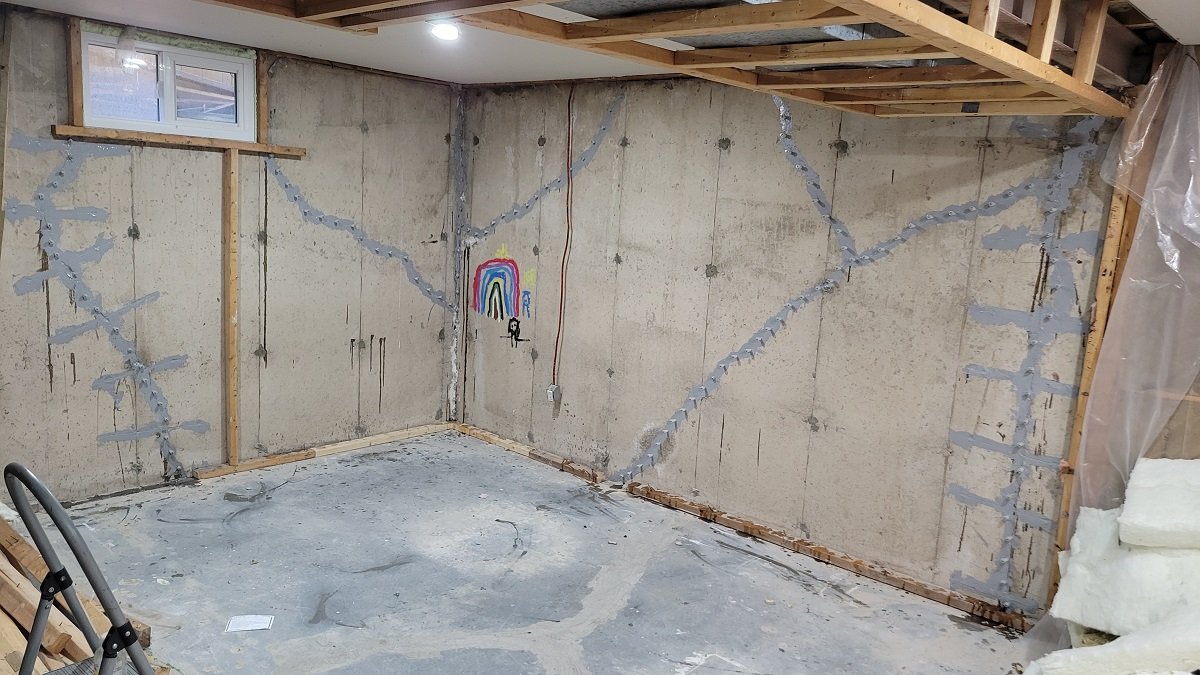Crack Injection
Cracks in poured concrete foundation walls are caused by a number of factors. The most common is rapid concrete curing during construction followed by differential foundation settlement.
A crack in a poured concrete wall is a water infiltration concern and rarely a structural one.
A high pressure injection system is used to fill the cracks. This procedure involves drilling small holes approx. 2/3 of wall thickness deep at 3" intervals along the entire length of crack. Ports are glued and hammered into the drilled holes and a special fitting is screwed into the port.
There are two different types of injectable materials:
Polyurethane is activated and injected into the crack through the port under high pressure. During the curing process, the polyurethane expands approximately ten times its original volume creating a watertight gasket seal.
Epoxy is used instead of polyurethane when a crack or cracks are determined to compromise the structural integrity of a poured concrete foundation wall. This procedure is the same as polyurethane except the injected material is an epoxy resin.
When should I be worried about foundation cracks?
If you spot water coming in through the cracks in your basement wall, you should be concerned. Water leaking into your basement can cause water damage to your belongings, mould issues, and further damage to the cracks in your basement wall.
Other cracks to keep an eye on include:
Cracks that are much larger on one end than the other.
Basement wall cracks that are larger than a tenth of an inch in width
Foundation cracks that appear to be getting larger
Cracks in your ceiling that extend down your wall
What causes non-structural cracks in my basement walls?
Foundation cracks are caused by a variety of things such as:
Clay Soil - Clay soil swells up when it soaks up moister and then shrinks when it dries out. This change in size may create soil movement that causes foundation cracks.
Poor Drainage - Poor drainage can cause hydrostatic pressure, which pushes against your basement walls causing cracks or bowed walls
Weather Changes - Hot summers, rainy springs and freezing winters can cause the soil to shrink and expand, causing basement wall cracks.
Is crack repair a DIY job?
While there are dozens of off-the-shelf kits and YouTube videos to help you repair your foundation cracks, they are no substitute for the experience and knowledge of a professional foundation repair contractor.
A foundation repair contractor will be able to tell if your foundation cracks are a structural issue and offer solutions to fix your wet basement permanently. With experience comes the knowledge of the proper epoxy injection or polyurethane injection product for your climate and type of crack.
Crack repair also involves drilling into your foundation walls, and a novice should never do this as it could cause even more concrete cracks, chipping or damage to your basement walls.
Foundation Fix in Niagara, Ontario, has been repairing basement cracks since 1990 and offers a lifetime warranty that is transferable to the next owner.










